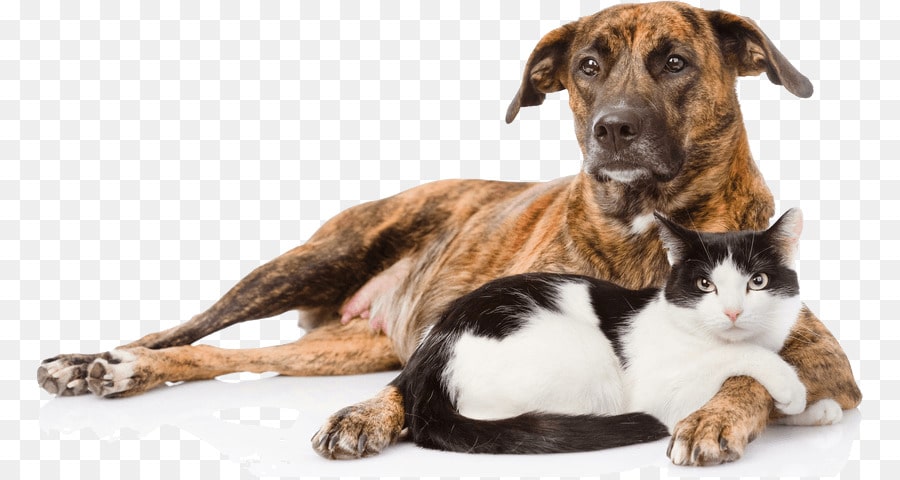Chronic Renal Failure (CRF), also called Chronic Renal Insufficiency (CRI), is a serious condition so it’s important that animals with CRF have their health managed by a veterinarian. Some dogs and cats with renal failure have done very well on Addiction with the minor modification described later in this article.
What is Chronic Renal Failure (CRF)?
CRF results when the kidneys no longer effectively filter and eliminate waste products, which causes waste to accumulate in the body. As CRF progresses, they may also experience electrolyte imbalances, anemia, and blood pressure problems.
With early detection, proper diet, and hydration, pets with CRF can remain active and comfortable for a long time.
What are symptoms of CRF?
There are many symptoms and behaviors that could indicate that an animal has CRF. The most telling signs are increased thirst and excessive urination.
Additional symptoms are loss of appetite, weight loss, nausea and vomiting, increased licking of their lips, excessive drooling, dehydration, constipation, hunching over the water bowl, oral ulcers, a grinding or crackling sound in the jaw, and stomach irritation. As CRF progresses, some animals also experience worsening breath, muscle wasting, weakness, lethargy, increased sensitivity to sound, and depression. Of course, not all pets have all the symptoms at the same time.
It’s important to begin treatment as soon as a CRF diagnosis is made because symptoms don’t usually appear until approximately 70% of kidney function is lost.
What causes CRF?
Scientists have not yet identified the exact causes of CRF, but there is evidence of a variety of contributing factors such as high blood pressure, low potassium levels, acidified diets, dental disease, kidney infections, congenital kidney disease, and the use of certain medications.
CRF can occur at any age, but it usually occurs in older animals. These days pets live much longer than they used to and their bodies eventually wear out just as human bodies do. CRF is one of the ways their organs wear out.
Because it’s one of the leading causes of illness and death in older cats, some veterinarians recommend having geriatric cats checked for CRF during every annual exam, including a blood test, urinalysis, and blood pressure measurement.
How is CRF diagnosed?
CRF is diagnosed using urinalysis and blood tests.
Once a dog or cat is diagnosed with CRF, you’ll be working closely with your veterinarian to manage and monitor the progression of the disease. General veterinarians are capable of managing CRF for the long-haul. However, veterinary internal medicine specialists or nephrologists may know more about the latest CRF treatments.
How is CRF managed?
Slowing the progression of CRF is important because there is no known cure for renal failure. The goal of all kidney treatments is to make the kidney’s job a little easier by controlling the amount of waste products sent through the kidneys. This is done primarily through diet, although medications and hydration therapy (diuresis) are also frequently used.
Most veterinarians recommend foods formulated specifically for pets with CRF. These foods are low in protein, salt, and phosphorus.
It’s vital that pets with advanced stages of CRF to continue eating. When animals feel nauseous, they associate food with queasiness and they may stop eating (at least for a while) the last type of food that they recently ate. Not eating makes them feel much worse. If a pet with CRF stops eating its prescription diet, it is better for them to eat non-prescription food than to eat less food and lose weight. No matter what, pets with CRF must not be allowed to skip a meal.
Water
Moisture in the diet is important for all pets, even more so for those with CRF because moisture helps the kidneys function efficiently. The more water that a pet with CRF drinks, the better.
Feeding canned food and also mixing in extra water is ideal for animals with CRF.
Keeping the water at room temperature is usually best as bodies absorb it more readily. Using automated pet water fountains is a great way to encourage pets to drink more water.
Vitamins
Pets with CRF who are eating an appropriate diet don’t need nutritional supplements. However, if they urinate or vomit frequently, their bodies can lose water-soluble vitamins. As always, consult with your veterinarian before giving supplements so they can recommend the most suitable supplements.
Other treatment options
As CRF progresses in a dog or cat, more aggressive approaches can be used. Some people treat CRF by using subcutaneous fluids, giving appetite stimulants, force-feeding, having kidney transplants, and doing dialysis. Everyone must work with their veterinarian to decide how aggressive they want to be in treating their pet.
Human patients with similar conditions do not describe their condition as painful; they just feel under the weather. Dehydration, in particular, can make patients very uncomfortable.
Feeding Addiction pet foods to dogs and cats with CRF
We’ve known animals with renal failure who have done very well on Addiction foods. Because our canned foods are high in protein, it is important to mix it with a carbohydrate (such as potato) to reduce the protein component of meals fed to pets with CRF. We recommend working with your veterinarian to find the right mixture of protein and carbohydrates to successfully manage your pet’s CRF.
Offering a variety of flavors is an important aspect of keeping pets eating, so having Addiction’s variety of novel meats in your cupboard is very helpful for dogs or cats who refuse other meats.
For more information / Sources
DiFiori, Carol and David DiFiori. Feline CRF Information Center. April 29 2012. April 1 2012. http://www.felinecrf.com/
Gustavson, Carrie. “Kidney Copes With Chronic Renal Failure”. College of Veterinary Medicine – University of Illinois. September 4 2000. May 13 2012. http://vetmed.illinois.edu/petcolumns/petcols_article_page.php?OLDPETCOLID=10
Langston, Cathy E. “Dietary considerations in dogs and cats with kidney disease”. DVM360. April 29 2012. October 1 2008. http://veterinarymedicine.dvm360.com/vetmed/Medicine/Video-Diet-considerations-in-pets-with-kidney-dise/ArticleStandard/Article/detail/551603?contextCategoryId=39607
Markwell, Peter. “Recent Advances in the Dietary Management of Chronic Renal Failure in Cats”. Proceedings from the World Small Animal Veterinary Association World Congress 2001. April 29 2012. August 2001.
Merck/Merial Manual for Pet Health: The Complete Pet Health Resource for Your Dog, Cat, Horse or Other Pets – In Everyday Language. Whitehouse Station, NJ : Merck & Co., Inc., 2007.
Richards, Mike. “Renal Failure in Dogs”. VetInfo.com. April 29 2012. March 18 2007. http://www.vetinfo.com/drenal.html











